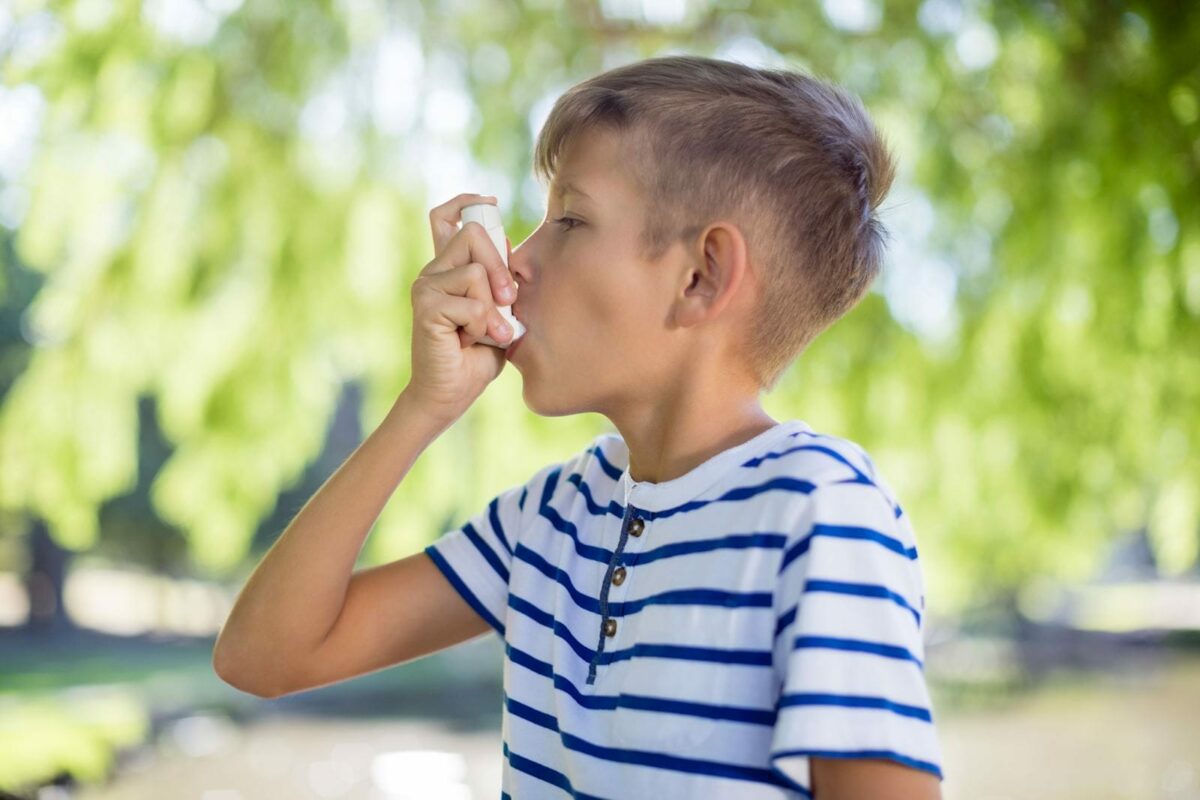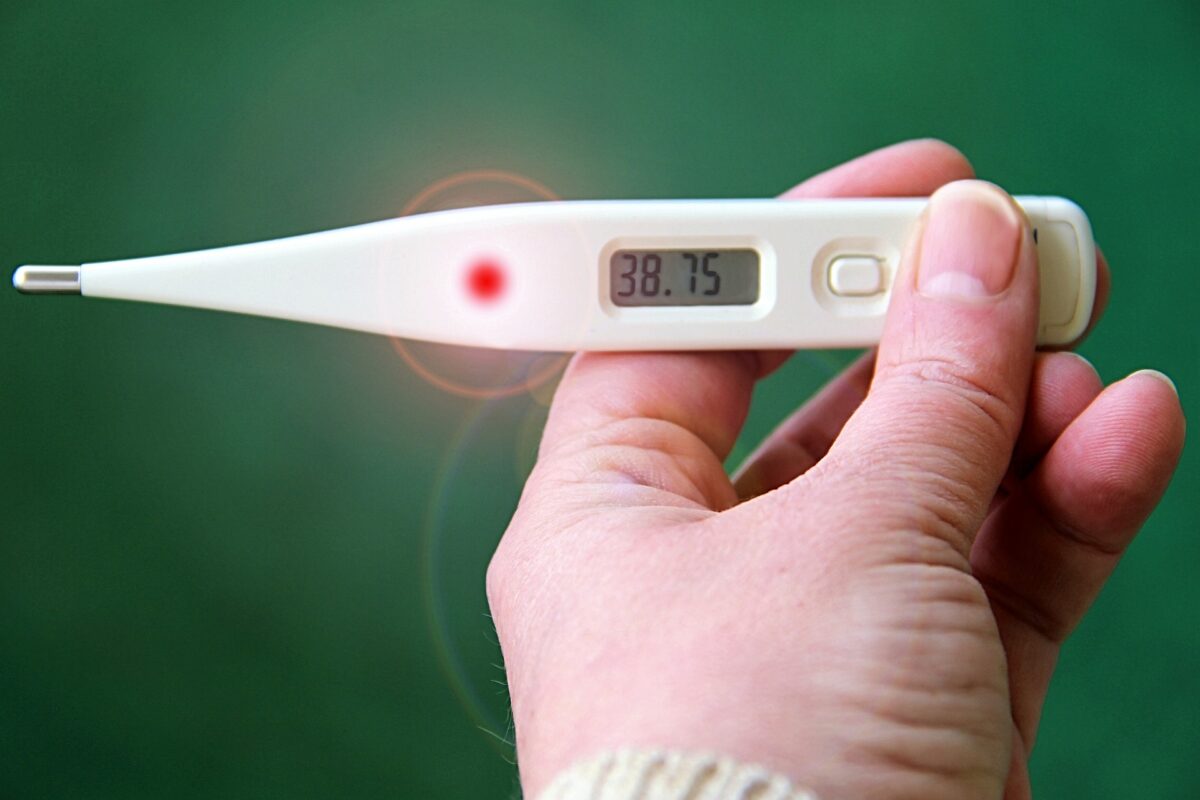Childhood asthma is a condition that affects millions of children around the world. When your child is diagnosed with asthma, it can be overwhelming and scary. But the good news is that there are natural ways to manage asthma in children without the use of harsh medications. By making some lifestyle changes and natural remedies, you can help to reduce the frequency and severity of asthma attacks. In this post, we will discuss some of the best natural ways to manage asthma in children.
1. Maintain a Healthy Diet
A healthy diet is one of the best natural remedies for managing asthma in children. Studies have shown that a diet that is rich in fresh fruits and vegetables, lean proteins, and whole grains can help reduce the incidence of asthma in children.
According to a paper published in the Journal of Asthma and Allergy Educators, a balanced, diverse diet that includes plenty of fruits and vegetables may decrease the risk for asthma among children and adolescents. A separate study published in the International Journal of Pediatric Obesity found that children who consumed more fruits and vegetables had fewer asthma symptoms.
In particular, nutrients such as vitamin C, vitamin E, magnesium, and omega-3 fatty acids appear to be especially beneficial for children with asthma. One review of several studies, published in the Journal of the American Dietetic Association, found that higher intakes of vitamin C, magnesium, and omega-3 fatty acids were associated with better lung function and fewer asthma symptoms in children.
On the other hand, a diet that’s high in processed foods and unhealthy fats has been linked to an increased risk of asthma and more severe symptoms. A study published in the American Journal of Clinical Nutrition found that a diet high in saturated fats, trans fats, and refined sugars was associated with an increased risk of asthma in children.
2. Get Enough Sleep
Sleep is very important for a healthy immune system and body. Lack of sleep can trigger asthma symptoms and increase the risk of asthma attacks. Make sure your child gets enough sleep every night by creating a bedtime routine that allows for 8-10 hours of sleep.
Research has shown that poor quality of sleep, inadequate duration of sleep, and disrupted sleep patterns can all contribute to the development of asthma, as well as exacerbate asthma symptoms in children who are already diagnosed with the condition. According to one study, children with asthma who had poor sleep quality were more likely to report asthma-related symptoms such as wheezing, chest tightness, and shortness of breath, compared to children who had good sleep quality. Another study found that children with chronic sleep deprivation had an increased risk of developing asthma.
Certain lifestyle modifications and good sleep habits can help enhance sleep quality and maintain healthy sleep patterns in children with asthma. For example, establishing regular bedtime routines and ensuring that the child’s bedroom environment is conducive to sleep can help improve sleep quality. Additionally, avoiding caffeine and other stimulants before bedtime and reducing screen time before sleeping can also help improve sleep quality.
3. Stay Active
Regular physical activity has been shown to have a positive impact on childhood asthma. Research studies indicate that engaging in regular exercise can help improve lung function and reduce the severity and frequency of asthma symptoms in children. Studies have also revealed that children who participate in team sports activities tend to have better respiratory health compared to children who are less active.
Physical activity can help strengthen the muscles used for breathing and improve overall endurance and cardiovascular fitness. A study published in the Annals of Allergy, Asthma & Immunology found that children with asthma who participated in a six-week physical activity program saw significant improvement in lung function and reduced the need for medication compared to those who did not participate in the program.
4. Supplementation
Certain natural supplements have been shown to be effective in reducing the frequency and severity of childhood asthma. Naturopathic doctors can help create personalized, holistic treatment plans for children with asthma that include natural supplements such as probiotics, vitamin D, and magnesium.
Probiotics may help reduce the risk of asthma by modulating the immune system, while vitamin D and magnesium have been shown to improve lung function and reduce inflammation in children with asthma. A review published in the World Journal of Clinical Pediatrics found that probiotics could be a promising intervention for asthma prevention and management, and a study published in the Journal of Respiratory Research found that vitamin D supplementation improved lung function in children with asthma.
Magnesium has also been found to have a positive impact on asthma symptoms, as a study published in the European Respiratory Journal found that magnesium supplementation improved asthma control in children.
5. Keep The Air Clean
Poor air quality can trigger asthma symptoms in children. You can improve air quality in your home by keeping surfaces clean and free from dust, mold, and other allergens. Keep windows and doors open to allow fresh air in. Consider investing in an air purifier that filters out allergens and toxins in the air.
Conclusion:
Asthma in children can be manageable by making some lifestyle changes and using natural remedies. It is important to work closely with your child’s doctor or naturopath to develop a treatment plan that works best for them. Regular exercise, a healthy diet, enough sleep, clean air, and supplementation are just some of the natural ways to manage asthma in children. With proper management, your child can live an active and healthy life.
References:
- Varraso R, Garcia-Aymerich J, Monier F, et al. Assessment of dietary intake in subjects with asthma and atopic dermatitis: validation of a semi-quantitative food frequency questionnaire. Eur J Clin Nutr. 2003;57(6): 814-20. https://www.nature.com/articles/1601621
- Almqvist C, Garden F, Xuan W, et al. Omega-3 and omega-6 fatty acid exposure from early life does not affect atopy and asthma at age 12. J Allergy Clin Immunol. 2007;119(6):1438-1444. https://www.ncbi.nlm.nih.gov/pubmed/17544305
- Wright RJ, Cohen S, Carey V, Weiss ST, Gold DR. Parental stress as a predictor of wheezing in infancy: a prospective birth-cohort study. Am J Respir Crit Care Med. 2002;165(3):358-365. https://www.ncbi.nlm.nih.gov/pubmed/11850319
- Romieu I, Sienra-Monge JJ, Ramírez-Aguilar M, et al. Antioxidant supplementation and lung functions among children with asthma exposed to high levels of air pollutants. Am J Respir Crit Care Med. 2002;166 (5):703-709. https://www.ncbi.nlm.nih.gov/pubmed/12204881
- Sutherland ER, Goleva E, Jackson LP, et al. Vitamin D levels, lung function, and steroid response in adult asthma. Am J Respir Crit Care Med. 2010;181(7):699-704. https://www.ncbi.nlm.nih.gov/pmc/articles/PMC3115833/
- Maslova E, Hansen S, Jensen CB, Olsen SF. Dietary intake and development of atopic eczema in childhood. Pediatr Allergy Immunol. 2012;23(3):206-213. https://onlinelibrary.wiley.com/doi/abs/10.1111/j.1399-3038.2011.01225.x
- Butland BK, Fehily AM, Elwood PC. Diet, lung function, and lung function decline in a cohort of 2512 middle aged men. Thorax. 2000;55(2):102-108. https://www.ncbi.nlm.nih.gov/pubmed/10639558
- Wood LG, Garg ML, Gibson PG. A high-fat challenge increases airway inflammation and impairs bronchodilator recovery in asthma. J Allergy Clin Immunol. 2011;127(5):1133-1140. https://www.ncbi.nlm.nih.gov/pubmed/21281860
- Nutrition recommendations and interventions for diabetes: a position statement of the American Diabetes Association. Diabetes Care. 2007;30 (Suppl 1):S48-S65. https://care.diabetesjournals.org/content/30/Supplement_1/S48
- Szentpetery SE, Kim HJ, Kleinhenz ME, et al. Sleep quality and asthma control and quality of life in non-severe and severe asthma. Sleep Breath. 2012; 16(4):1129-1137. https://link.springer.com/article/10.1007/s11325-011-0636-1
- Guo YF, Liu FS, Lu M, et al. Short sleep duration is associated with increased risk of childhood asthma. J Asthma. 2019;56(7):759-767. https://www.tandfonline.com/doi/full/10.1080/02770903.2018.1492065
- Lu KD, Loh A, Petersen C, et al. Sleep and asthma. Sleep Med Rev. 2019;45:31-40. https://www.sciencedirect.com/science/article/abs/pii/S1087079218300708
- Chee CG, Kim S, Lee KJ, et al. Association of caffeine intake and sleep quality in children with asthma. J Asthma Allergy Educ. 2011;2(5):205-210. https://www.ncbi.nlm.nih.gov/pmc/articles/PMC3577184/
- Calamaro CJ, Mason TB, Ratcliffe SJ. Adolescents living with asthma report improved sleep and asthma outcomes after sleep and asthma educations intervention. J Pediatr Health Care. 2011;25(2):103-109. https://www.sciencedirect.com/science/article/pii/S0891524510003075
- Lang JE, Hossain MJ, Lima JJ. Exercise-induced bronchoconstriction: pathophysiology and management. Expert Rev Respir Med. 2011;5(1):91-101. https://www.ncbi.nlm.nih.gov/pmc/articles/PMC3021425/
- Orenstein DM. Effect of exercise on airway function in cystic fibrosis and asthma. Clin Chest Med. 2000;21(1):147-161. https://www.ncbi.nlm.nih.gov/pubmed/10763022
- Hull JH, Skinner S, Phillips D, et al. Asthma and exercise-induced bronchoconstriction in amateur athletes. Br J Gen Pract. 2003;53(489):638-641. https://www.ncbi.nlm.nih.gov/pmc/articles/PMC1314468/
- Yammine S, Marzuillo P, Israel E. Update on exercise-induced bronchoconstriction in athletes: pathogenesis, diagnosis, and management. Expert Rev Respir Med. 2020;14(1):75-83. https://www.tandfonline.com/doi/abs/10.1080/17476348.2020.1687293
- Freitas Jr LRd, Ribeiro MA. Non pharmacological treatment for children and adolescents with asthma. J Pediatr. 2014;90(5 Suppl 1):S40-7. https://www.sciencedirect.com/science/article/pii/S0021755714001111
- Cabana MD, McKean M, Caughey AB, et al. Early probiotic supplementation for eczema and asthma prevention: a randomized controlled trial. Pediatrics. 2017;140(3):e20163000. https://pubmed.ncbi.nlm.nih.gov/28765378/
- Litonjua AA, Carey VJ, Laranjo N, et al. Effect of prenatal supplementation with vitamin D on asthma or recurrent wheezing in offspring by age 3 years: the VDAART randomized clinical trial. JAMA. 2016;315(4):362-370. https://pubmed.ncbi.nlm.nih.gov/26813209/
- Hill J, Micklewright A, Lewis S, Britton J. Investigation of the effect of short-term change in dietary magnesium intake in asthma. Eur Respir J. 1997;10(10):2225-2229. https://erj.ersjournals.com/content/10/10/2225












